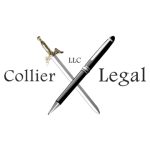Asset Purchase Agreement: A Comprehensive Overview

What Is an Asset Purchase Agreement?
An Asset Purchase Agreement (APA) is a legal contract that outlines the terms under which a buyer acquires specific assets from a seller. Unlike Share Purchase Agreements, where ownership of the business entity itself is transferred, APAs allow for the selective acquisition of assets. This provides greater flexibility and can help limit the buyer’s exposure to liabilities.
Key Components of an Asset Purchase Agreement
1. Identification of Assets
The APA must clearly define the assets being purchased. These may include tangible property like equipment, inventory, or real estate, and intangible assets such as intellectual property, customer contracts, and goodwill. Equally important is identifying any excluded assets to prevent disputes.
2. Purchase Price and Payment Terms
This section specifies the total purchase price, the structure of payments (e.g., lump sum or installments), and any adjustments based on working capital or inventory levels. Proper documentation here is essential for both valuation and tax reporting purposes.
3. Representations and Warranties
Representations and warranties provide mutual assurances. Sellers typically affirm ownership of assets, the absence of liens, and compliance with laws. Buyers confirm they have authority to enter the agreement and possess the financial ability to complete the transaction. These clauses are vital in any business transaction.
4. Covenants
Covenants are ongoing obligations before and after closing. Sellers might agree to continue operating the business normally until closing, while buyers might commit to securing financing or approvals. Post-closing, non-compete or non-solicitation covenants may be included to protect the buyer’s investment.
5. Conditions Precedent
These are specific conditions that must be fulfilled before the transaction can close. Common conditions include satisfactory due diligence, obtaining third-party consents, or regulatory approvals. Clear articulation of these conditions is key to managing risk in mergers and acquisitions.
6. Indemnification Provisions
Indemnification protects parties from losses arising out of breaches of the agreement or unforeseen liabilities. Provisions often specify caps, thresholds, and time limits. Including these clauses is a best practice in all contracts to ensure post-closing protection.
7. Governing Law and Dispute Resolution
The agreement should identify which jurisdiction’s laws will apply and the method of resolving disputes—whether litigation, arbitration, or mediation. This ensures clarity if disagreements arise.
Advantages of Asset Purchase Agreements
Selective Acquisition: Buyers can acquire only the desired assets and avoid unwanted liabilities.
Liability Management: Because liabilities are not automatically assumed, risk is reduced.
Tax Benefits: Buyers may receive favorable tax treatment, such as a stepped-up basis for acquired assets.
Potential Challenges
Third-Party Consents: Some assets, like contracts or licenses, may require third-party approval to transfer.
Complexity: APAs require detailed due diligence and can be more complex than share purchases.
Purchase Price Allocation: Allocation among assets must be carefully negotiated due to tax implications.
Legal Support and Strategic Planning
Whether you’re acquiring assets as part of a strategic expansion or divesting business units, proper legal planning is essential. Engaging general counsel early ensures that your interests are protected and the process runs smoothly. APAs are often one piece of a broader business formation or corporate restructuring strategy.
Conclusion
Asset Purchase Agreements are powerful tools for structuring business acquisitions with precision. They offer flexibility, legal protections, and strategic value when crafted carefully. If you’re considering an asset purchase or sale, consulting a legal team experienced in business transactions will ensure a smooth and compliant process.

About
Attorney Collier started his own law firm straight out of law school and has been practicing law in Ohio for 5+ years. During that time, Joe focused on business law and litigation, gaining some exposure to intellectual property law. While running his firm in 2021, Joe decided to go back to school and get his patent license. Since then, Attorney Collier has been focusing on protecting innovators and entrepreneurs through his expertise in intellectual property and business law.
